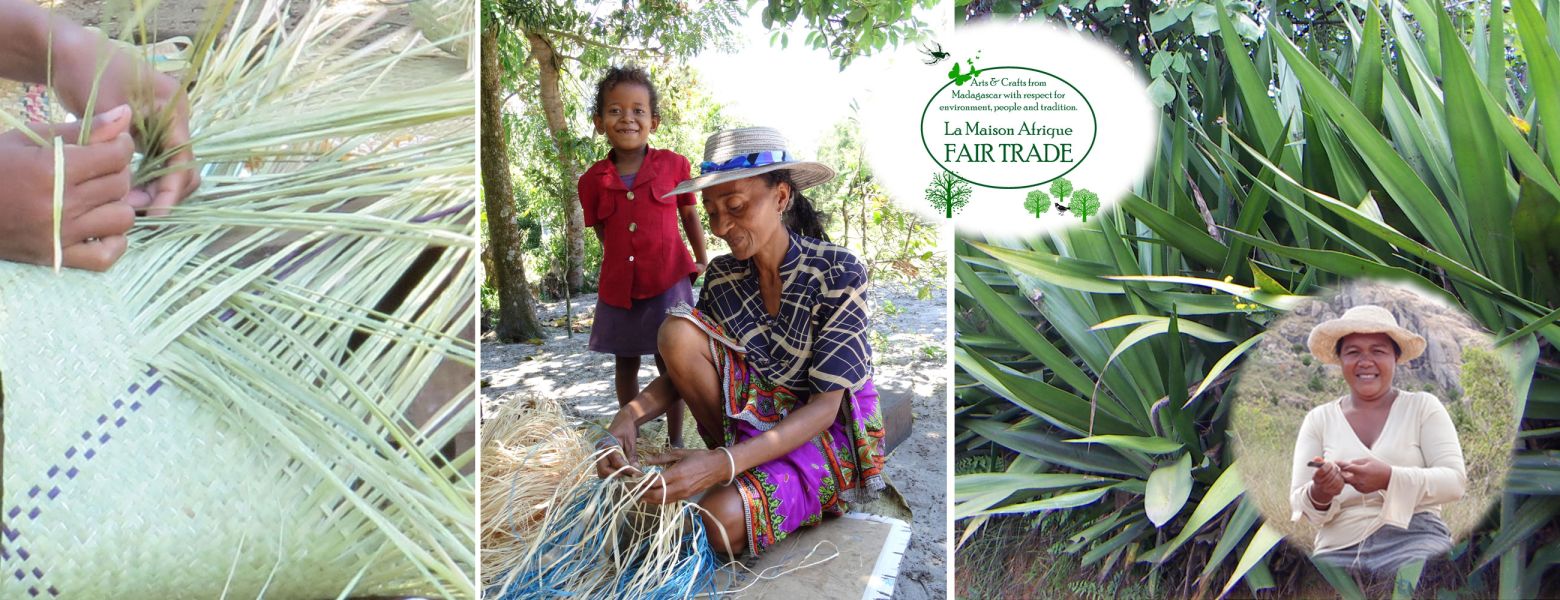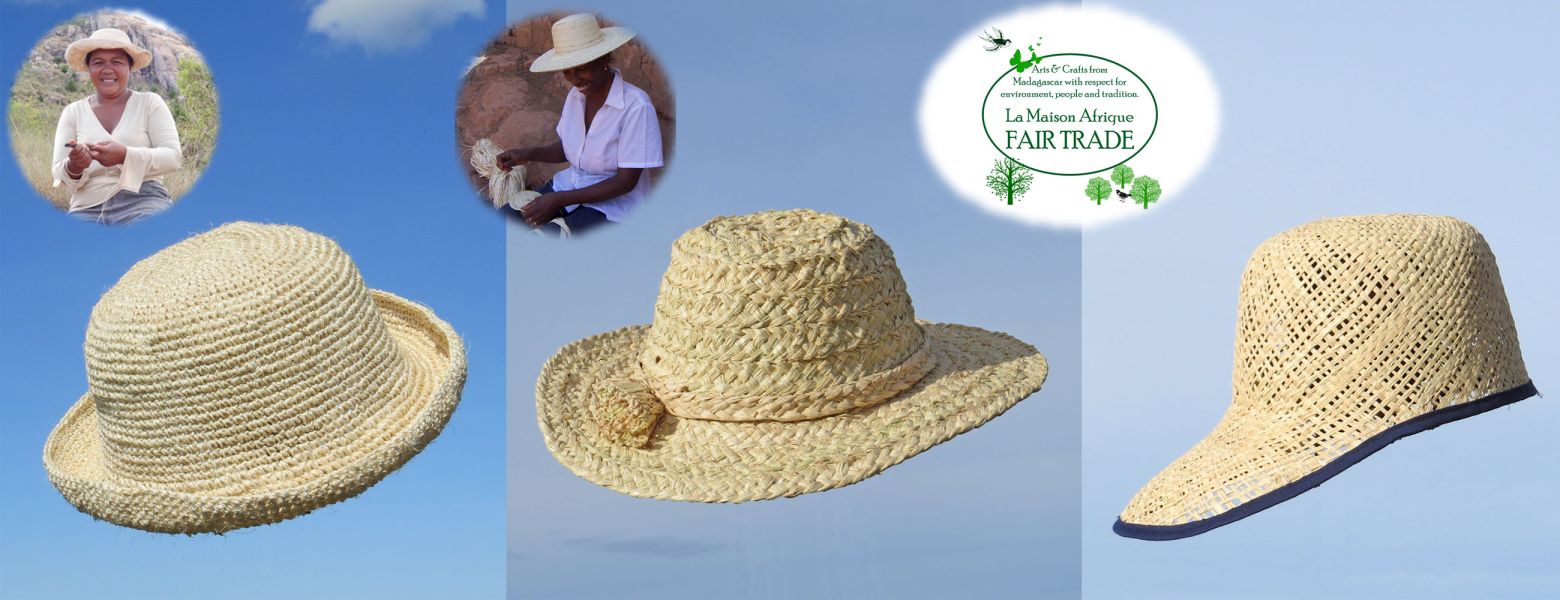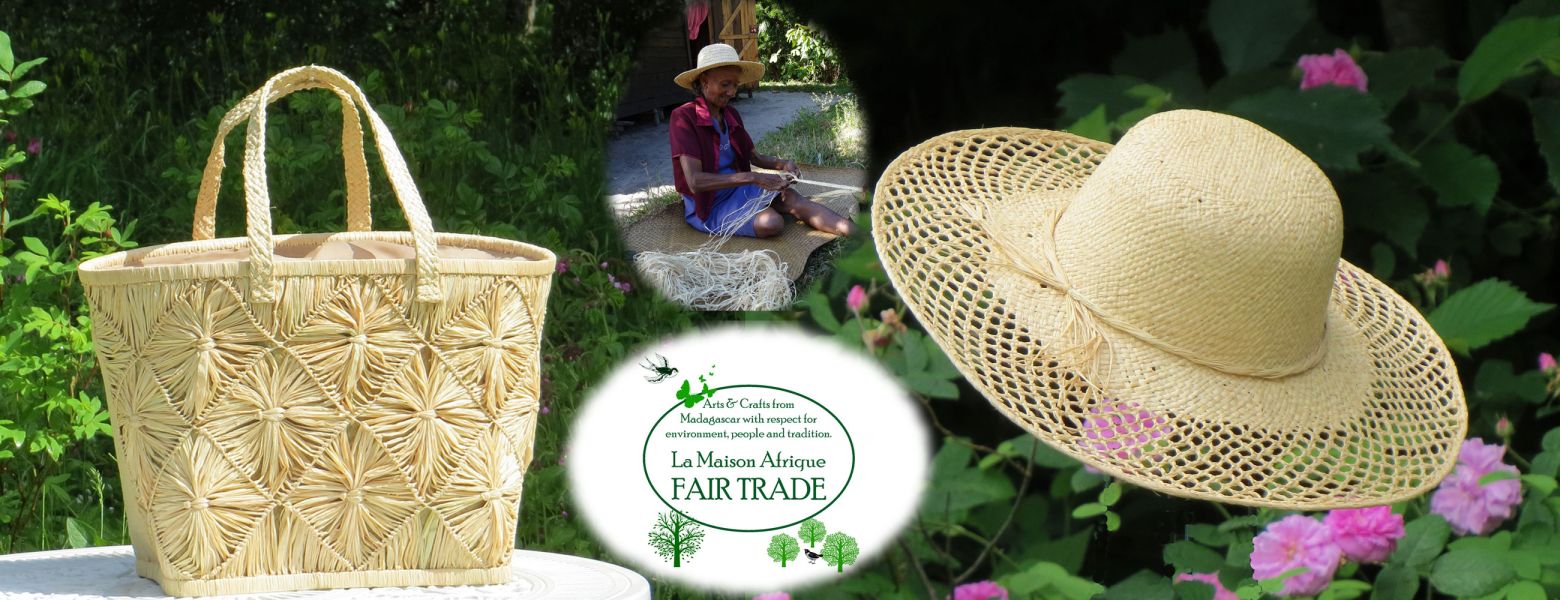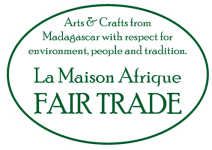Fair Trade
-
The 10 principles for Fair Trade can be described as the Fair Trade movement's "backbone". They have been formed during many years of activism, they connect Fair Trade organizations globally. The Fair Trade movement has a history of more than 70 year. More about its history and actors here below.
The 10 principles for Fair Trade are: 1) Creating Opportunities for Economically Disadvantaged Producers 2) Transparency and Accountability 3) Fair Trading Practices 4) Payment of a Fair Price 5) Ensuring no Child Labour and Forced Labour 6) Commitment to non-Discrimination, Gender Equity and Freedom of Association 7) Ensuring good Working Conditions 8) Providing Capacity Building 9) Promoting Fair Trade 10) Respect for the Environment. The 10 principles (full text) are found at the bottom of the page.
Fair Trade History and movement
Early examples of Fair Trade organizations are Ten Thousand Villages (U.S.) buying needlework from Puerto Rico in 1946, Oxfam (U.K.) from Chinese refugees during the 1950's.
The 1960's and 70's: NGO's and individuals in both the South and the North advocated a fair, responsible trade in order to achieve development. Also within political forums is this pointed out, for example during the United Nations Conference on Trade and Development in Delhi 1968, where the Southern countries requested "Trade not Aid".
Fair Trade was during this period focused on development. The Northern organization where mainly larger development and sometimes religious agencies. Alongside this there where organization that for political reasons wanted to support, why also the term solidarity trade was used. Production and sales of crafts gives opportunities and empowerment to what is often the most marginalized. This was an important reason for Fair Trade to focus on crafts.
For global cooperation, definitions and standards, the International Fair Trade Association (IFAT) was founded 1989. The organization was formed in Europe, but has now members dispersed over more than 80 countries. Following decision at IFAT AGM Oct 2008, the name has been changed to the World Fair Trade Organization (WFTO). Regional WFTO organizations have been formed in Asia, Africa, Latin America, Europe and the Pacific. La Maison Afrique FAIR TRADE started in 1995 and are among the pioneers within the Swedish Fair Trade movement. In 2002 La Maison Afrique FAIR TRADE became a member of the World Fair Trade Organization (IFAT) in 2002 and is one of the founders of WFTO-Europe.
To inform and raise awareness is important for the Fair Trade movement: The products should be delivered with a message. The shops have here an important task. The first Fair Trade shops emerged in the 1950's. In 1984, the first conference for European Worldshops where organized. In 1994 the Network of European World Shops (NEWS) was created. In 2009 NEWS was dissolved, its tasks became integrated in WFTO-Europe.
World Fair Trade Day is a worldwide event celebrated the 2nd Saturday in May. World Fair Trade Day was initiated by NEWS in 1996 (as"Europeans Worldshops Day"). World Fair Trade Organization (WFTO) is now the main organizer of the event.
Fairtrade product label: With the initiative to label products (Fairtrade Labelling), food sales has rapidly increased in absolute terms as well as proportion of Fair Trade. The introduction took place in 1988 with"Max Havelaar"-labelled coffee in the Netherlands. Similar labelling organizations where set up in more Northern countries. In 1997, the Fair Trade Labelling Organization (FLO) was created in order to internationally coordinate the product labelling. Fair Trade Labelling Organization Fair Trade Organization mark: The World Fair Trade Organization (former IFAT) defined the Fair Trade standards in 2001. The year after, it introduced a monitoring system for Fair Trade Organizations. In 2004, the Fair Trade Organization Mark was launched. The Fair Trade Organization mark can be used by Fair Trade organizations which have passed the monitoring system and been approved by WFTO. The Fair Trade Organization mark can be used on information materials; websites, catalogues, posters (but not on products.) WFTO is working on the introduction of a product labelling system for Fair Trade organizations.
A Fair Trade Town is a community that makes a collective commitment to Fair Trade. It engages local government, schools, businesses, community organisations and activists to work together. Since April 2000 when Garstang, U.K. declared itself Fair Trade town, there is now more than 2000 Fair Trade Towns spread over some 30 countries worldwide. The commitment is generally formulated in five goals; Local council passes a resolution supporting Fair Trade. A range of Fair Trade products are available locally. Community organizations support FT and use FT products. Media coverage and events raising awareness about FT. A FT steering group representing different sectors is formed to co-ordinate. In Sweden, FT Towns are called "Fairtrade cities". Since the first was declared in 2006, there are now (2026) approx 30 Fairtrade cities in Sweden. Fairtrade Sweden is coordinating etc
Religious communities in many of the world's countries (eg the Church of Sweden) have a long-standing and active involvement in Fair Trade. During the years 2009-2020, this commitment in Sweden was formalized under the concept "Church for Fairtrade". The commitment is needed and hopefully it will live on in many different forms.
The global Fair Trade movement has achieved a lot. However, in comparison with the gigantic world poverty, growing environmental problems and notably climate change(…) greater efforts and extensive cooperation are needed. Examples of such coopeation is that the above-mentioned international Fair Trade networks together established an office in Brussels for Fair Trade lobbying and information activities; the Fair Trade Advocacy Office, FTAO.
The 10 principles of Fair Trade
-
1) Creating Opportunities for EconomicallyDisadvantaged Producers Poverty reduction through trade forms a key part of the organization's aims. The organization supports marginalized small producers, whether these are independent family businesses, or grouped in associations or co-operatives. It seeks to enable them to move from income insecurity and poverty to economic self-sufficiency and ownership. The organization has a plan of action to carry this out.
-
2) Transparency and AccountabilityThe organization is transparent in its management and commercial relations. It is accountable to all its stakeholders and respects the sensitivity and confidentiality of commercial information supplied. The organization finds appropriate, participatory ways to involve employees, members and producers in its decision-making processes. It ensures that relevant information is provided to all its trading partners. The communication channels are good and open at all levels of the supply chain.
-
3) Fair Trading PracticesThe organization trades with concern for the social, economic and environmental well-being of marginalized small producers and does not maximize profit at their expense. It is responsible and professional in meeting its commitments in a timely manner. Suppliers respect contracts and deliver products on time and to the desired quality and specifications. Fair Trade buyers, recognizing the financial disadvantages producers and suppliers face, ensure orders are paid on receipt of documents and according to the attached guidelines. For Handicraft FT products, an interest free pre-payment of at least 50 % is made on request. For Food FT products, pre-payment of at least 50% at a reasonable interest is made if requested. Interest rates that the suppliers pay must not be higher than the buyers' cost of borrowing from third parties. Charging interest is not required. Where southern Fair Trade suppliers receive a pre payment from buyers, they ensure that this payment is passed on to the producers or farmers who make or grow their Fair Trade products. Buyers consult with suppliers before canceling or rejecting orders. Where orders are cancelled through no fault of producers or suppliers, adequate compensation is guaranteed for work already done. Suppliers and producers consult with buyers if there is a problem with delivery, and ensure compensation is provided when delivered quantities and qualities do not match those invoiced. The organization maintains long term relationships based on solidarity, trust and mutual respect that contribute to the promotion and growth of Fair Trade. It maintains effective communication with its trading partners. Parties involved in a trading relationship seek to increase the volume of the trade between them and the value and diversity of their product offer as a means of growing Fair Trade for the producers in order to increase their incomes. The organization works cooperatively with the other Fair Trade Organizations in country and avoids unfair competition. It avoids duplicating the designs of patterns of other organizations without permission. Fair Trade recognizes, promotes and protects the cultural identity and traditional skills of small producers as reflected in their craft designs, food products and other related services.
-
4) Payment of a Fair PriceA fair payment is one that has been mutually negotiated and agreed by all through on-going dialogue and participation, which provides fair pay to the producers and can also be sustained by the market, taking into account the principle of equal pay for equal work by women and men. The aim is always the payment of a Local Living Wage. Fair Payment is made up of Fair Prices, Fair Wages and Local Living Wages. Fair Prices: A Fair Price is freely negotiated through dialogue between the buyer and the seller and is based on transparent price setting. It includes a fair wage and a fair profit. Fair prices represent an equitable share of the final price to each player in the supply chain. Fair Wages: A Fair Wage is an equitable, freely negotiated and mutually agreed wage, and presumes the payment of at least a Local Living Wage. Local Living Wage:A Local Living Wage is remuneration received for a standard working week (no more than 48 hours) by a Worker in a particular place, sufficient to afford a decent standard of living for the Worker and her or his family. Elements of a decent standard of living include food, water, housing, education, health care, transport, clothing, and other essential needs, including provision for unexpected events.
-
5) Ensuring no Child Labour and Forced LabourThe organization adheres to the UN Convention on the Rights of the Child, and national / local law on the employment of children. The organization ensures that there is no forced labor in its workforce and / or members or homeworkers. Organizations who buy Fair Trade products from producer groups either directly or through intermediaries ensure that no forced labor is used in production and the producer complies with the UN Convention on the Rights of the Child, and national / local law on the employment of children. Any involvement of children in the production of Fair Trade products (including learning a traditional art or craft) is always disclosed and monitored and does not adversely affect the children's well-being, security, educational requirements and need for play.
-
6) Commitment to Non Discrimination, Gender Equity and Women's Economic Empowerment and Freedom of AssociationThe organization does not discriminate in hiring, remuneration, access to training, promotion, termination or retirement based on race, caste, national origin, religion, disability, gender, sexual orientation, union membership, political affiliation, HIV/Aids status or age. The organization has a clear policy and plan to promote gender equality that ensures that women as well as men have the ability to gain access to the resources that they need to be productive and also the ability to influence the wider policy, regulatory, and institutional environment that shapes their livelihoods and lives. Organizational constitutions and by-laws allow for and enable women to become active members of the organization in their own right (where it is a membership based organization), and to take up leadership positions in the governance structure regardless of women's status in relation to ownership of assets such as land and property. Where women are employed within the organization, even where it is an informal employment situation, they receive equal pay for equal work. The organization recognizes women's full employment rights and is committed to ensuring that women receive their full statutory employment benefits. The organization takes into account the special health and safety needs of pregnant women and breast-feeding mothers. The organization respects the right of all employees to form and join trade unions of their choice and to bargain collectively. Where the right to join trade unions and bargain collectively are restricted by law and/or political environment, the organization will enable means of independent and free association and bargaining for employees. The organization ensures that representatives of employees are not subject to discrimination in the workplace.
-
7) Ensuring Good Working ConditionsThe organization provides a safe and healthy working environment for employees and / or members. It complies, at a minimum, with national and local laws and ILO conventions on health and safety. Working hours and conditions for employees and / or members (and any homeworkers) comply with conditions established by national and local laws and ILO conventions. Fair Trade Organizations are aware of the health and safety conditions in the producer groups they buy from. They seek, on an ongoing basis, to raise awareness of health and safety issues and improve health and safety practices in producer groups.
-
8) Providing Capacity BuildingThe organization seeks to increase positive developmental impacts for small, marginalized producers through Fair Trade. The organization develops the skills and capabilities of its own employees or members. Organizations working directly with small producers develop specific activities to help these producers improve their management skills, production capabilities and access to markets - local / regional / international / Fair Trade and mainstream as appropriate. Organizations which buy Fair Trade products through Fair Trade intermediaries in the South assist these organizations to develop their capacity to support the marginalized producer groups that they work with.
-
9) Promoting Fair TradeThe organization raises awareness of the aim of Fair Trade and of the need for greater justice in world trade through Fair Trade. It advocates for the objectives and activities of Fair Trade according to the scope of the organization. The organization provides its customers with information about itself, the products it markets, and the producer organizations or members that make or harvest the products. Honest advertising and marketing techniques are always used.
-
10) Respect for the EnvironmentOrganizations which produce Fair Trade products maximize the use of raw materials from sustainably managed sources in their ranges, buying locally when possible. They use production technologies that seek to reduce energy consumption and where possible use renewable energy technologies that minimize greenhouse gas emissions. They seek to minimize the impact of their waste stream on the environment. Fair Trade agricultural commodity producers minimize their environmental impacts, by using organic or low pesticide use production methods wherever possible. Buyers and importers of Fair Trade products give priority to buying products made from raw materials that originate from sustainably managed sources, and have the least overall impact on the environment. All organizations use recycled or easily biodegradable materials for packing to the extent possible, and goods are dispatched by sea wherever possible.
-
World Fair Trade Organization, version 2017
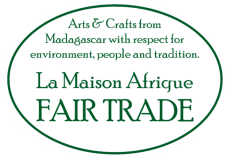
La Maison Afrique FAIR TRADE
-
+46 (0) 706017777
-
This email address is being protected from spambots. You need JavaScript enabled to view it. -
Trustorps Gård
311 65 Vessigebro
SVERIGE -
VAT/Orgnr: SE556526323201


